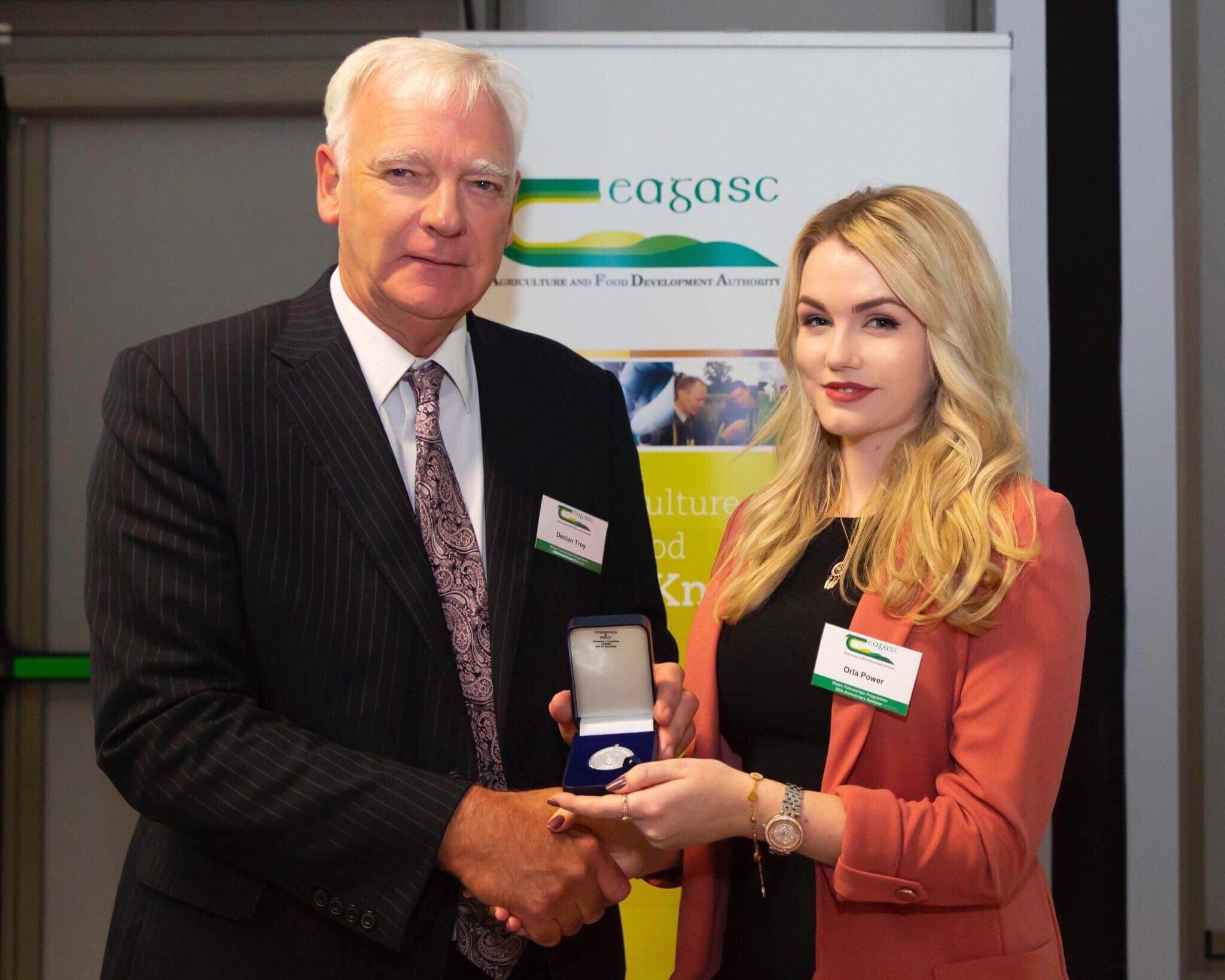PhD Food Science candidate wins IFSTI medal for Best Food Science and Technology Presentation

Tegasc Walsh Fellowship 4th Year PhD Food Science student Orla Power, wins Institute of Food Science and Technology Ireland (IFSTI) medal for Best Food Science and Technology Presentation.
The 25th Anniversary Walsh Fellowships Seminar was held at Johnstown Castle, Co. Wexford on Friday 5th October 2018. The annual seminar is a very important element of the training of Walsh Fellows and Fellows nearing completion of their research. Students make either an oral presentation or participate in the poster session. Orla Power who studies under the supervision of Dr. Seamus O'Mahony (UCC) and Dr. Noel McCarthy (Teagasc), won the Institute of Food Science and Technology Ireland (IFSTI) medal for best food science and technology presentation. She was presented with the award by Declan Troy, President of IFSTI for her presentation titled of ‘Unlocking the true potential of high protein dairy powders.’
High protein milk powers are of great commercial importance to the Irish dairy industry. They are utilised in a number of consumer products including muscle building products, sports recovery beverages and infant milk formula. However, these powders are not readily soluble which results in flecking in rehydrated products. The addition of calcium chelators to high protein powders increases protein solubility; however, there is a significant concomitant increase in viscosity. This increase in viscosity causes fouling in membrane filtration systems and spray dryers, resulting in plant downtime and financial loss. Orla's research employed transglutaminase to enzymatically crosslink milk proteins. It was found that this modification resulted in lower viscosity products, improved rehydration behavior and also contributed to retaining the whiteness of milk. This work addressed key concerns associated with high protein powders through cost effective industrially applicable means, while maintaining protein structure and lending an insight into protein interactions with calcium chelators.
School of Food and Nutritional Sciences
Contact us
School of Food and Nutritional Sciences, Room 240 Food Science Building, University College, Cork
